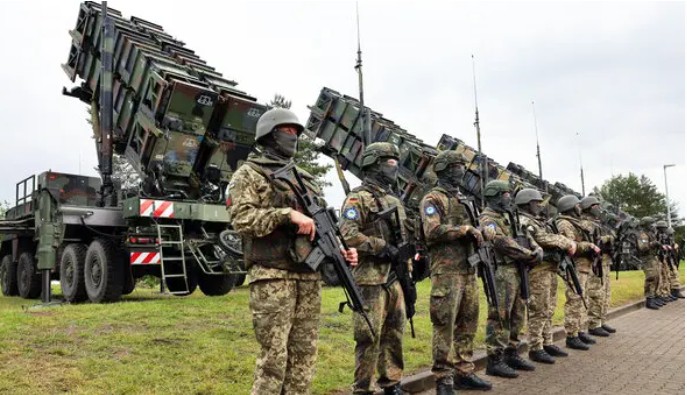The Pentagon has confirmed a temporary halt in the delivery of key missile systems and munitions to Ukraine, signaling a significant recalibration in U.S. defense priorities amid escalating concerns over domestic stockpile levels.
In a press briefing on Tuesday, Pentagon spokesperson Maj. Gen. Sean Parnell emphasized that while U.S. support for Ukraine remains “unwavering,” the Department of Defense must balance global commitments with the need to ensure American forces remain fully equipped and combat-ready.
“We are committed to Ukraine’s defense, but we must also ensure the readiness of our own forces,” Parnell said. “This is a strategic pause, not a policy reversal.”
What Weapons Are Being Paused?
Among the systems affected are several high-demand assets that have played a critical role on the Ukrainian battlefield:
-
PAC-3 Patriot missile interceptors
-
Guided Multiple Launch Rocket System (GMLRS) munitions
-
155mm howitzer artillery shells
-
Stinger man-portable air-defense systems
-
AIM-7 Sparrow and AGM-114 Hellfire air-to-ground missiles
Officials did not disclose the quantity of delayed shipments but noted the impacted items represent some of the most in-demand munitions across NATO and allied operations.
A Shift Toward “America First” in Defense Policy
The move aligns closely with President Donald Trump’s “America First” doctrine, which prioritizes national security and military readiness over extended foreign commitments.
Since returning to office in January 2025, Trump has directed a series of policy reviews across defense, intelligence, and foreign aid frameworks. This latest decision signals a more cautious approach to international military assistance, even for key strategic allies like Ukraine.
“We cannot deplete our own stockpiles to the point of risk,” a senior White House official said on condition of anonymity. “President Trump has made it clear: U.S. forces come first. We will continue to support our allies, but not at the cost of our own security.”
Mixed Reactions From Allies and Congress
Reaction to the announcement has been swift and divided. Ukrainian officials expressed concern but stopped short of direct criticism. In a statement, the Ukrainian Ministry of Defense acknowledged the pause, saying, “We understand the need for strategic planning and remain grateful for ongoing U.S. support.”
NATO Secretary General Jens Stoltenberg, speaking from Brussels, said the alliance remains united and will explore options to fill capability gaps as needed.
However, in Washington, lawmakers offered mixed reactions. Senator Lindsey Graham (R-SC) praised the move, calling it a “necessary correction in overextended foreign policy.” Conversely, Senator Chris Murphy (D-CT) warned that “sending mixed signals to Kyiv and Moscow at this moment undermines stability and deterrence.”
Defense Experts: A Logistical and Strategic Reality
Military analysts say the decision reflects broader logistical pressures facing the Pentagon, including global supply chain disruptions, surging procurement costs, and the strain of prolonged support for Ukraine since the full-scale Russian invasion in 2022.
“We’ve reached a critical juncture,” said Michael O’Hanlon, senior defense analyst at the Brookings Institution. “The U.S. cannot continue at this pace indefinitely without serious consequences for its own operational readiness.”
According to recent Congressional Budget Office reports, U.S. munitions stockpiles are stretched thin, particularly for systems like the GMLRS, which have seen usage across multiple theaters.
Looking Ahead: Strategic Support Without Overextension
Despite the pause, officials stressed that U.S. support for Ukraine is not ending. Instead, the Pentagon is exploring alternatives, such as increasing joint production with European allies and leveraging private-sector defense partnerships.
“We’re not abandoning Ukraine,” Maj. Gen. Parnell reiterated. “We’re adjusting to the realities of modern warfare and resource management.”
The Department of Defense has not provided a timeline for resuming full-scale shipments but pledged regular updates as reassessments continue.



